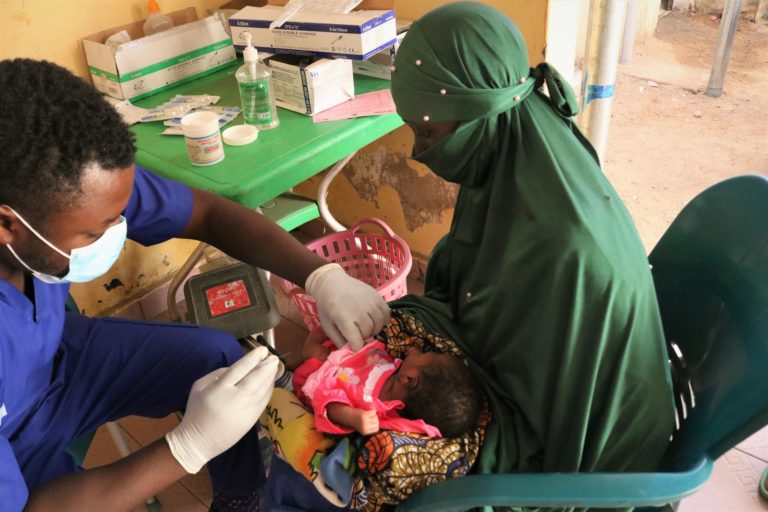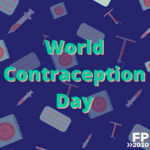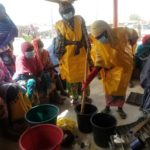PROMOTING VACCINATION THROUGH POSITIVE COMMUNITY FEEDBACK
AN IHANN SUCCESS STORY
Kaltum Modu, a mother of five children, lived in Banki before the humanitarian crisis. She left in 2014 when the insurgents captured the town but returned in 2016. Her life before the insurgency was productive as Banki was a trade hub under Bama LGA of Borno state due to its proximity to Cameroon.
“I was a food vendor and a farmer before the crisis started.” Kaltum recounts. “My husband was into petty trading. Though we didn’t have formal education, we attended Quranic school. My family had a good life. There was a government-owned hospital before the insurgency. But I was unaware of the importance of healthcare services like immunization. I had two children before the crisis, and my first child only received two vaccines when she was sick. Then after the second vaccine, I decided not to immunize my children anymore because of the rumour that the vaccine would prevent our children from having children.”
The myths that immunization is the “white man’s” way of achieving family planning and population control preceded the humanitarian crisis. Lack of knowledge about preventing the six killer childhood diseases – pneumonia, malaria, diarrheal, measles, HIV, and meningitis; the beliefs that witches spiritually cause ill-health, unorthodox medicine, and religion contributed to hinder immunization programs.
“In 2014, I had my third child during the first attack on Banki. Life was difficult. We had no food and no health care available. My son became ill and died months later. He was vomiting, stooling and emaciated during the illness.” Kaltum shared in sadness.
“When FHI 360 community volunteers visited our place, they told us about child immunization, and why it is good for our children and the kind of diseases it prevents. It got me thinking about how my children had been sick from different diseases; they had suffered, and one of them died. I thought it was witches that killed him. From what the volunteers’ told us, the sickness was because we didn’t immunize our children, so I decided I would give it a try.” Kaltum said.
The onset of the Northeast humanitarian conflict resulted in the loss of lives and property, destruction of health care services and other social infrastructures with mass displacement and movements of Nigerians within the Lake Chad region. It also had a negative effect on immunization outcomes, leading to epidemics of measles and other vaccine-preventable diseases.
“I had my fifth child in the Hospital, and I immunized him from birth to nine months. I attended the ante-natal care and post-natal care clinic and learned a lot. I practiced exclusive breastfeeding for the first six months without water or traditional medicine. My son looks healthier than his other siblings. Now I intend to take family planning so that I can rest,” Kaltum expressed.
Since the inception of the integrated humanitarian assistance to Northeast Nigeria (IHANN) project, FHI 360 has collaborated with WHO and the Borno State Primary Health Care Development Agency (BoSPHCDA) to immunize children against vaccine-preventable diseases.
From 2019 to June 2021, FHI 360 immunized 8,329 children.
This figure represents 89% of children immunized of 9,352 skilled supported births at the facility 9,294 and home (58) within the same period.
Similarly, FHI 360 has administered 21,886 immunization doses to children and women who are pregnant and of childbearing age.
This service continues across the sites.
Vaccines administered to clients include:
- Oral Polio Vaccine (OPV):
- Bacillus Calmette-Guerin (BCG) Vaccine
- Hepatitis B Vaccine
- Pentavalent Vaccine
- Meningitis A Vaccine
- Pneumococcal Conjugate Vaccine
- Inactivated Polio Vaccine
- Measles Vaccine
- Yellow Fever Vaccine




